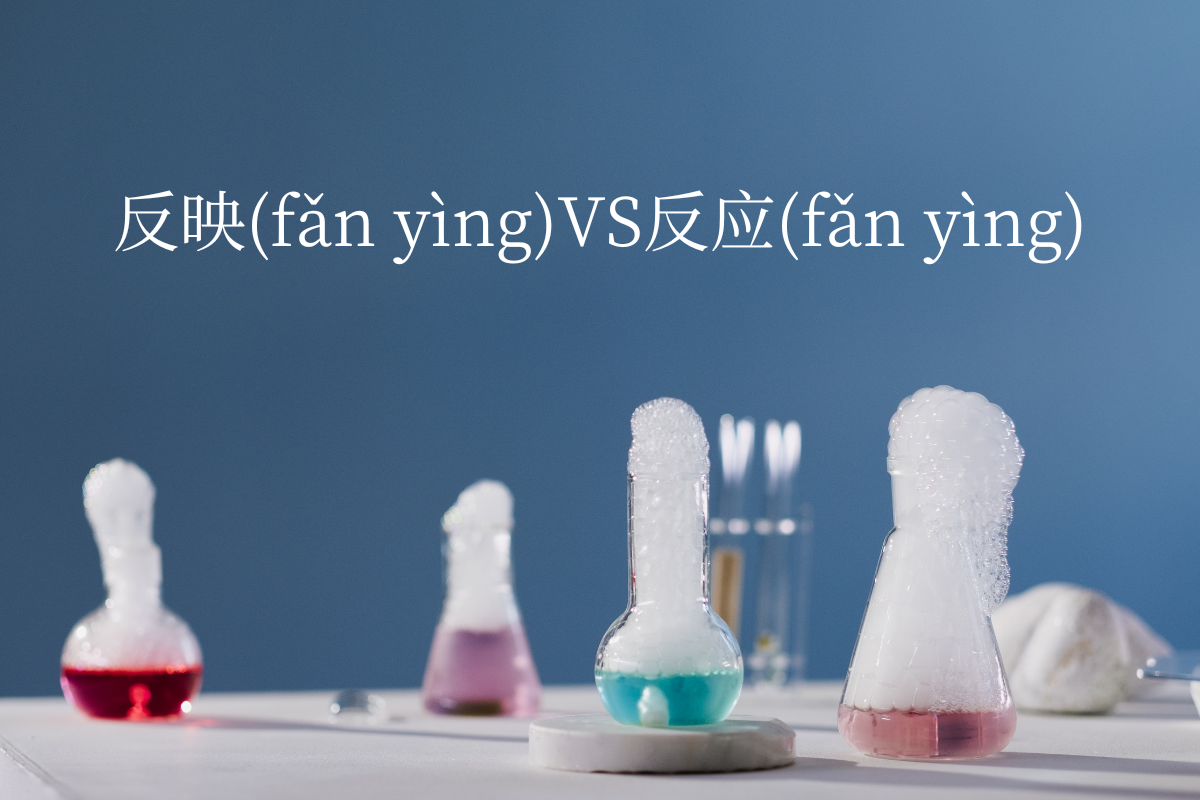HSK 3 Words: 反映 (fǎn yìng) VS 反应 (fǎn yìng)
In the realm of Chinese language learning, the terms 反映 (fǎn yìng) and 反应 (fǎn yìng) can often puzzle learners. While both words may seem similar in meaning, they carry distinct connotations that set them apart. In this article, we will delve into the nuances between these two words by examining their definitions and examples of usage.

反映 (fǎn yìng) typically implies a reflection or portrayal of an idea, sentiment, or condition. It is often used to describe the expression or representation of thoughts, opinions, or situations.
Examples:
- This movie reflects the social reality.
这部电影反映出了社会现实。
zhè bù diàn yǐng fǎn yìng chū le shè huì xiàn shí 。 - This painting reflects the author's emotions.
这幅画反映出了作者的情感。
zhè fú huà fǎn yìng chū le zuò zhě de qíng gǎn 。 - This book reflects the features of 19th century European society.
这本书反映了19世纪欧洲社会的风貌。
zhè běn shū fǎn yìng le 19 shì jì ōu zhōu shè huì de fēng mào 。
反应 (fǎn yìng), on the other hand, implies a response or the action taken in response to a stimulus or event. It often suggests the way someone or something responds or behaves in a particular situation.
Examples:
- After hearing the news, his reaction was very calm.
听到这个消息后,他的反应很平静。
tīng dào zhè gè xiāo xī hòu , tā de fǎn yìng hěn píng jìng 。 - The market reacted positively to this policy.
市场对这项政策做出了积极的反应。
shì chǎng duì zhè xiàng zhèng cè zuò chū le jī jí de fǎn yìng 。 - The film received a warm response and the audience cheered for it.
这场电影的反应很热烈,观众们都为之喝彩。
zhè chǎng diàn yǐng de fǎn yìng hěn rè liè , guān zhòng men dōu wéi zhī hè cǎi 。
Quiz: Please consider whether to use 反映 (fǎn yìng) VS 反应 (fǎn yìng) in the following sentences.
- 听到这个消息后,他很吃惊地作出______。
tīng dào zhè gè xiāo xī hòu , tā hěn chī jīng dì zuò chū ______。 - 这些数据______了这个城市的经济发展情况。
zhè xiē shù jù ______ le zhè gè chéng shì de jīng jì fā zhǎn qíng kuàng 。 - 这个问题______了当前社会的一些深层次矛盾。
zhè gè wèn tí ______ liǎo dàng qián shè huì de yī xiē shēn céng cì máo dùn 。
Answers:
- 反应 (fǎn yìng)
- 反映 (fǎn yìng)
- 反映 (fǎn yìng)